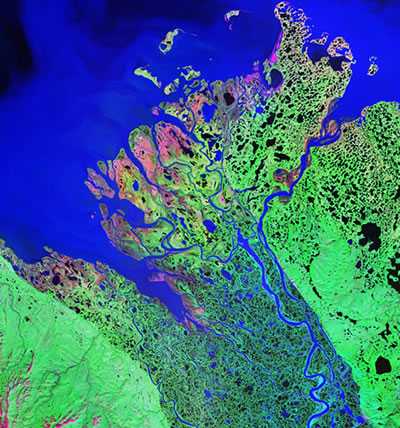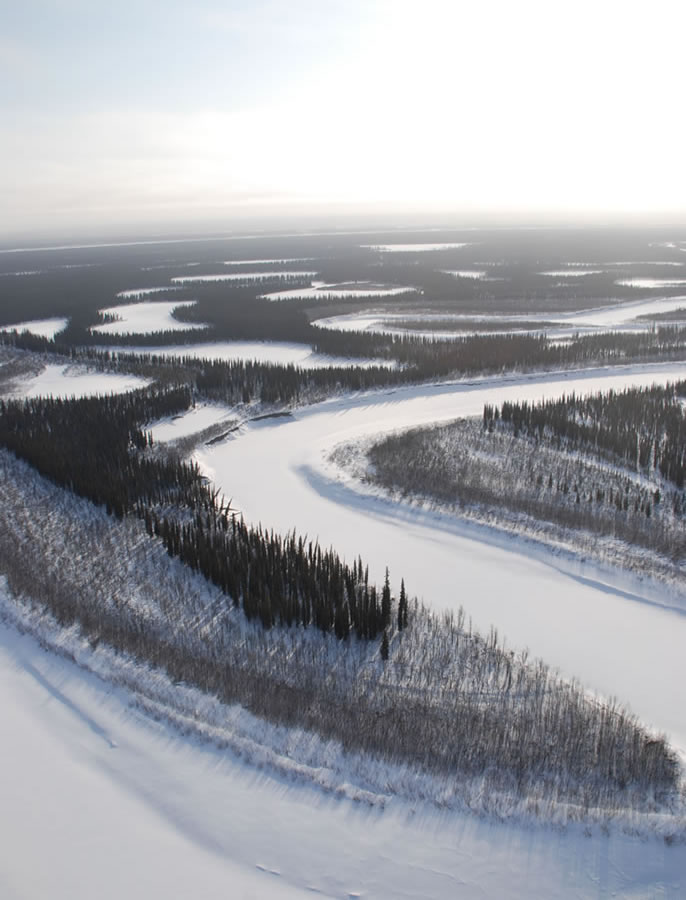Biogeoscience


By studying sediments in the arctic Mackenzie delta light shall be shed on the climate history of the region of the last 1000 years and more. The warmer the climate the more ice and soils are melting and the more melt water inundates the delta each spring and floods rivers and lakes.
A critical part play the normally permanently frozen soils, the permafrost, as they store immense amounts of organic carbon in peat or methane derived from plants, microbes, and animals. If the soils melt, the organic carbon is released from the Arctic permafrost and back into the ocean and atmosphere, where it is of relevance to the climate change. The amount of carbon in the sediments as well as the amount of melt water thus give us information about the extent of global warming affecting permafrost as well as carbon release.

Our group studies the carbon cycle of organic compounds. In rivers, lakes and oceans such organic substances are deposited over thousands of years building up an archive for the past.